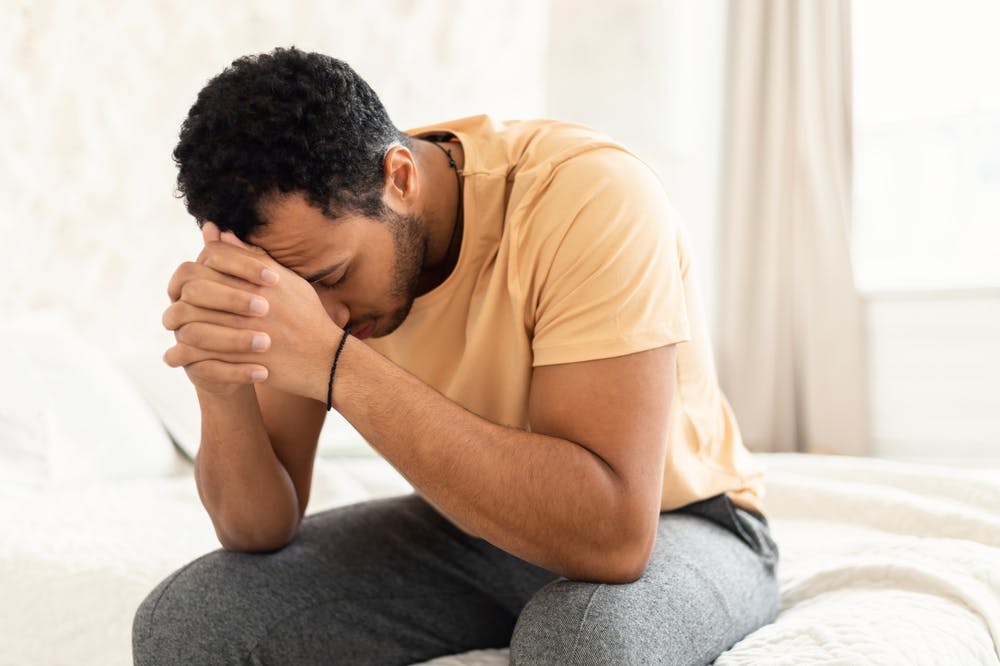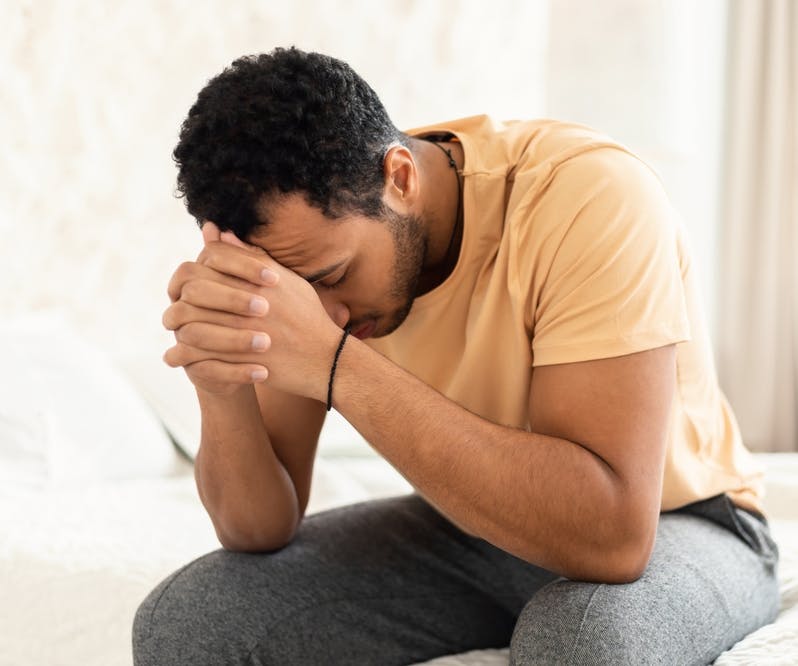You may have wondered if what you are feeling is caused by anxiety or something else, so you may have asked, ‘What does anxiety stomach pain feel like?’
If you are wondering, ‘Is mental health a disability?’ the answer is that it legally can be, as defined by the Australian Human Rights Commission.[1] Diagnoses are also based on widely recognised literature and benchmarks, like the Diagnostic and Statistical Manual of Mental Disorders, Fifth Edition (DSM-5).[2]
Consequently, such mental health conditions can have physical effects, such as stomach pains. Stomach pains are never ideal, especially when you cannot seem to pinpoint a physical cause for the pain. With this in mind, Mosh is more than ready to help.
Here is some general information about such a mental health situation that you would be interested in knowing.
Nervousness or anxiety are normal feelings that many of us experience regularly, but anxiety disorders are characterised by a heightened fear or anxiety response to a stressful situation or even when there is not a cause for concern.
To wit, our body’s stress response is meant to alert us to dangers and help us pay attention to what is happening. However, when our body is continuously pumping out cortisol, a stress hormone, it can lead to a number of behavioural or physical symptoms that greatly interfere with a person’s way of life.
The good news is that there are effective treatments for anxiety disorders that can help people lead productive lives.
When it comes to ‘What does anxiety stomach pain feel like?’ the symptoms of anxiety can be debilitating or disruptive and can greatly affect a person’s ability to function in their daily life. Its symptoms can range from mild to extreme and affect multiple aspects of a person’s daily life.
Here are some ways in which anxiety can affect people.
Behavioural symptoms
Anxiety can change a person’s behaviours in drastic ways, with the symptoms below being only a few of the possible behavioural effects.[3]
- A sense of dread or fear
- A sense of persistently being on edge
- Difficulty concentrating or focusing on tasks
- Irritability or restlessness
- Avoidance of social contact
These symptoms can lead to even greater self-doubt and worry, exacerbating the behavioural signs of anxiety. In some cases, even performing daily tasks at work, school, or home may feel very stressful or difficult, contributing to or leading to heightened anxiety.
Physical symptoms
To answer ‘What does anxiety stomach pain feel like?’ anxiety disorders can also manifest physical symptoms as a stress response.[4] These symptoms can also vary in severity and, in some cases, may not be observable or noticeable in public.
Below are some of the more common physical symptoms of anxiety.
- Dizziness or nausea
- Palpitations or elevated heart rate
- Muscle aches or tension
- Dry mouth or thirst
- Excessive sweating
- Shortness of breath or tiredness
- Stomach or headaches
- Pins and needles sensations, especially at the extremities
- Difficulty sleeping or insomnia
If these symptoms interfere with your ability to conduct your daily affairs, it may be necessary to ask for support. Get in touch with us at Mosh through our assessment questionnaire, and if medical treatment or counselling is needed, our doctors will reach out to you.
When it comes to topics like ‘What does anxiety stomach pain feel like?’ even a single stressful or traumatic event could negatively impact our digestive system.
Anxiety releases hormones and chemicals – such as cortisol, which affects metabolism and inflammatory responses[5] – into our bodies. When these chemicals are released into the digestive tract, they negatively affect our gut flora (microorganisms that live in your digestive tract and assist digestion) and disturb or disrupt antibody production. Such chemical imbalances can then lead to gastrointestinal problems like indigestion or stomach cramps.[6]
If you find yourself experiencing stomach pains with seemingly no physical causes or triggers or asking ‘What does anxiety stomach pain feel like?’ it may be possible that you’re suffering from the physical symptoms of prolonged stress or anxiety. Reach out to a doctor for a more in-depth assessment.
It can be difficult to recognise anxiety apart from other mental health concerns, such as depression, because of the overlapping symptoms among them. To understand how is depression diagnosed or how anxiety is diagnosed, it is always best to speak with a doctor first.
It is also important to get a timely diagnosis to prevent or mitigate its symptoms from progressing or worsening, especially when you’re looking up terms like ‘What does anxiety stomach pain feel like?’ Speak with your Mosh doctor if you find yourself in scenarios such as the following.
- The amount of worry you experience impacts your lifestyle, work life, or personal life significantly.
- You are extremely stressed or upset by your worries.
- You are increasingly worried about or thinking the worst of all sorts of matters, warranted or not.
- You find yourself unable to control the amount of worry you experience.
- You have experienced a persistent sense of worry or fear nearly every day for six months or more.
Once you are aware of how to know if you’ve depression or anxious, there are several different ways that such concerns can be treated. The following are only a few of the possible options your Mosh doctor may offer as part of your treatment, where necessary.
Counselling
Counselling, or talk therapy, is a type of therapy that focuses on helping a patient identify their feelings and why they are feeling the way they do.
Psychotherapy
Psychotherapy, in general, aims to change the thinking behaviours or patterns involved in a mental health condition in several ways.[7] Psychotherapy is also the wider field of treatment that includes counselling, as well as other forms of therapy, such as cognitive behaviour therapy (CBT), art therapy, and exposure therapy.
Medical treatments
In many instances, prescription medication may be necessary to help manage the symptoms of effects of mental health conditions.
There is no fixed answer to questions like ‘How long do anxiety attacks last?’ but with appropriate medical guidance or advice, its symptoms can be managed safely.
All of our doctors are registered with the Australian Health Practitioner Regulation Agency (AHPRA), the regulatory body for health practitioners in the country. They can address various health concerns, including mental wellness concerns and questions like ‘What does anxiety stomach pain feel like?’
Please do not hesitate to reach out if you need help with how to relieve anxiety or how to deal with depression – your emotional health and wellbeing are always important.
You do not have to handle your mental health concerns alone. Get in touch with a Mosh doctor today.

